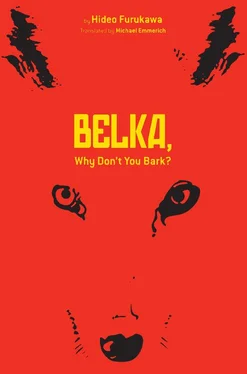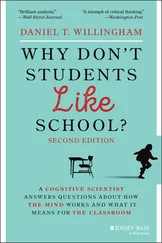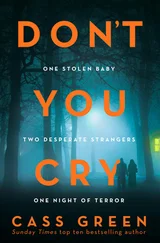What the hell?
“They let the city be destroyed so that Russia would survive. Moscow’s residents abandoned the city. Napoleon’s army marched into a capital that was all but empty. That night, Moscow burned. It was set on fire. By the Russians. The city burned for a week, two-thirds of it reduced to rubble. And the French… they occupied the rubble and starved. All 110,000 men died of starvation. They ate crows. They ate cats. And still they did not last a month. And what is happening now?”—the old man asked, speaking now to himself, and then answering himself—“This is not 1812. This is not 1991. That is your explanation. You understand? We, the dogs, we condemn Russia! There is your answer.”
The hostage’s face was deathly white.
1991. Moscow in the winter. The temperature was below five degrees Fahrenheit. Sunset was still a ways off. A blizzard. The old man was walking. He saw three hundred people lined up outside the US Embassy. He stared at the snaking line of visa applicants. People standing without talking, exhaling clouds of white breath. Snow dusted their hats, their hair. The line progressed hardly at all.
It was decided. The end of a state so huge it covered one-sixth of the earth’s landmass. Soon, the white-, blue-, and red-striped Russian flag would be hoisted up the pole in front of the Kremlin. Four months had passed since those summer days, and during that time a handful of men who acted in secret had won, and the Soviet Union was finished. Dead.
The old man reached his destination. A closed kiosk on the corner, a large umbrella in a stand in front. A man in an Italian designer suit, his features instantly branding him Caucasian, from the Caucasus, stood waiting. He was young. In his late twenties, perhaps—no older than thirty-one or thirty-two.
“That business this morning,” the young man said. “Truly professional.”
The old man grinned. “Who did you have following me?” he asked. “And why did you want to see me? Was the guy I killed one of your associates?”
“No, no,” the young man said. “He was an enemy. You did me a favor. You know, having a real professional out there…”
“A professional?” the old man said. “You mean me?”
“Yeah. Having a professional like you running around… unchecked… don’t know if I like it. Seems dangerous, to tell the truth.”
“You want to kill me?”
“No, the opposite,” the young man said. “I want to give you what you deserve.”
“You want to give me a job, you mean? In your organization?”
“Exactly. Is that against your policy?”
“No,” the old man said. I have no policy, his eyes said, twinkling.
Twinkling with scorn… for history.
“Well then, shall we discuss terms? Contract period, benefits, compensation… by the way, I was wondering, what should I call you?”
“My name, you mean?”
“Yes, your name.”
“Listen.”
“Hmm?”
Silence. Two seconds later, a bell began chiming. It hung in the belfry of a church that had been destroyed long ago, in pre-perestroika times, whose restoration began in the late 1980s. It rang and rang as the snow skittered lightly in random patterns over Moscow.
“Call me the Archbishop,” the old man said.
One morning, Strelka awoke to a smell in the air, all over the city—it was the scent of the dogs. One morning, Strelka noticed that the temperature in the city had risen. HOT, ISN’T IT? she said to the dogs. ARE WE ACTUALLY KILLING THAT FUCKING COLD RUSSIAN WINTER? she asked Belka. Winterwinterwinterwinterwinter, the fucking billion-year-long Russian winter is finally ending! she sang to herself, again and again. She lifted her face to the sky, looked once more at the billowing black smoke. She was about to blow up a mafia weapons storehouse she had been guarding until a few minutes ago. She’d watched the old lady making explosives with TNT. You old bag, you’re good , she had said. And then she had listened to the old lady talking to her—You have no way of knowing this, of course, darling, but my husband was a commissioned officer in the special forces, and so was my son, and I myself used to look after the dogs in the breeding facility, and part of my job was to set up explosives in the training grounds. I know what I’m doing. Since the old lady was speaking in Russian, she didn’t understand a word, but she nodded. When someone died, the old lady continued, the Director always took care of the family left behind. Strelka listened, then replied: You’re half dog yourself, aren’t you? Not that I’m one to speak—I’m all dog. She said that in Japanese. Strelka knew that last night, WO and WT had gone around cutting the chains on pet dogs, setting them loose, and agitating the wild dogs. She knew that when WO and WT breathed, their breath smelled like a dog’s breath. I’m a dog, so I can tell. They’re half dogs too.
I’m a dog. They won’t kill me.
With all this street fighting going on, we’re invisible.
Belka protected Strelka. He carried out her commands immediately. He was the older brother, watching over the others—and more. There was also the name. He had become the next Belka, so the other dogs acknowledged him, acknowledged that one day, at some point in the future, he would lead them all. Belka slept, awoke, ran. Belka slept stretched out beside Strelka, awoke, ran. Belka lay low, watching passively as gangsters had shootouts in the streets in the early morning, as black cars with tinted windows were blown into the air with rocket launchers. Belka understood. He knew the humans didn’t realize that the flames of this war they were fighting were being fanned by dog guerrillas. He knew the humans were looking for human enemies, so they wouldn’t suddenly start shooting dogs, or Strelka for that matter, because Strelka was a dog, and because in human eyes she looked like a defenseless human girl. So, Belka said, they’ll let Strelka kill them, they’ll be killed, and even as they die they won’t understand what’s happening, and all along, all throughout the town, the dogs… we dogs… we will multiply. Belka could feel it happening. He didn’t think it, he felt it—all across the Eurasian continent, his brethren, the other dogs… they were setting out, heading for this land, the Russian Far East, a massive migration.
The humans had it all wrong.
The city was full of dogs loitering, hanging around. So they thought.
They allowed the dogs to remain invisible. Even the dogs who had been trained, thoroughly trained, in the deadly art of street fighting.
All morning, the barking continued back and forth in the distance. Echoing. The dogs were on their way. The dogs were coming. The dogs were getting closer. From the taiga beyond the city, from enclaves in the mountains dozens of miles away, from across the Amur River, from the lands where Russian aristocrats were exiled in the nineteenth century. Gradually, little by little, their numbers increased as they converged on the city. In reality, however, three planes contributed the most to the great migration. Three planes owned by private companies that took off one after the other from Moscow, then landed together in the city. Dogs obeyed their own instincts. When a dog barked somewhere far off, they responded. And humans too… mafia members, too, acted in accordance with instincts they could not disobey. When an organization began to lose its grip on an area, competitors moved in to gobble it up. The three planes brought in 220 members of the most powerful criminal organization in Russia: a far-reaching international gang whose operations extended as far as the old Eastern Bloc, come now to overwhelm the city by force of numbers. The organization could display its power by taking control. We don’t need you little guys diddling around—we control the Russian underworld. That was the message. The mass media had been waiting, they were ready to spread the news across the Eurasian continent. They had been primed for two days now.
Читать дальше












